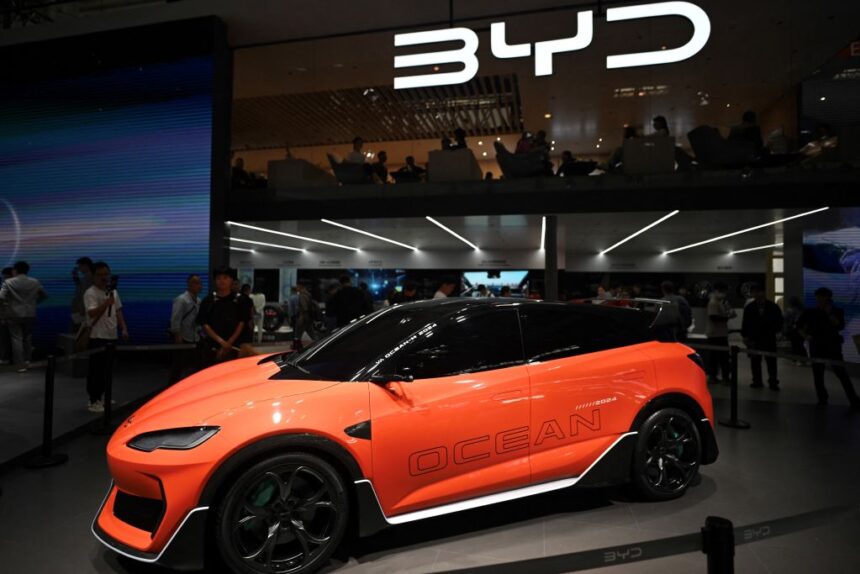The Biden administration has announced a quadrupling of tariffs on Chinese electric vehicles in 2024, increasing the current rate of 25 percent to 100 percent. This decision aims to prevent the influx of cheap Chinese EVs and protect the US auto industry. The White House has also raised tariffs on other Chinese products like steel, aluminum, lithium-ion batteries, and solar cells. The move is part of President Biden’s strategy to manage competition with China responsibly and address concerns about China’s unfair trade practices. The administration plans to adjust these tariffs further based on feedback from various stakeholders. She announced new dialogues with China’s Ministry of Finance and stated the United States would “underscore the need for a shift in policy by China” in those talks.
Since then, Chinese media outlets have made coordinated attacks on U.S. concern over China’s excessive production capacities, calling it “protectionism.”
Other Tariff Increases
The Biden administration has levied new tariffs on Chinese port cranes and certain medical products. It will also triple tariffs on Chinese lithium-ion batteries, steel, and aluminum products to 25 percent this year and double the tariff on Chinese semiconductors to 50 percent by next year. The decision comes weeks after the White House called for tripling Chinese steel and aluminum tariffs.
These tariffs, initially put in place by the Trump administration in 2020, are up for review after four years, according to the “phase one” trade agreement between the United States and China. These “Section 301 tariffs” were imposed according to Section 301 of the Trade Act of 1974, which authorized U.S. presidents to impose tariffs to counter international trade violations.
In a press call, a senior administration official said that upon review, the Office of the United States Trade Representative recommended no tariff reduction because “China has not eliminated many of the forced technology transfer policies and practices, and instead has even become more aggressive in some of those actions, including through cyber intrusions and cyber theft that harm American workers and businesses.”
In addition to commercial considerations, President Biden has also expressed national security concerns over Chinese cars. In February, he asked the Department of Commerce to investigate whether Chinese vehicles pose data or infrastructure risks to the United States.
Ms. Brainard at the National Economic Council highlighted the benefit of increased tariffs in two battleground states—Michigan and Pennsylvania—but said that the decision had nothing to do with election-related considerations. According to White House senior officials on the press call, because the tariff decisions were a follow-up on the Section 301 review, the Biden administration has not considered an outright ban on Chinese EVs.
The officials assured that these tariff increases will not affect inflation as they are “a very targeted set of tariffs on specific sectors.”
Source link





